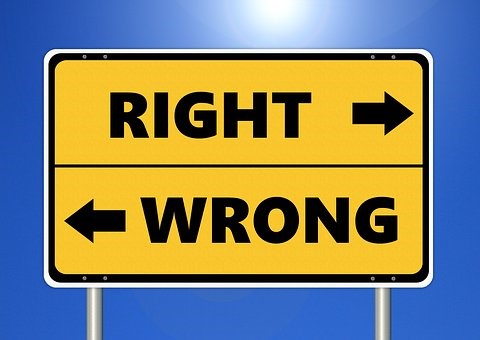This article was submitted by retired U.S. Army Chaplin Don Zapsic, Jr.
The upcoming 2020 presidential election season promises to be an epic, no-holds barred battle for the heart-and-soul of America. The two major parties invited to the big dance will likely play a major role in pushing the nation’s moral compass needle closer to, or further off-center. In light of the culture’s prevailing moral climate, “What role will morality play in the next round of presidential politics?” If the past is any indication, it will be more of a “check-in” regarding our national character than a driving force in the election of the next president. While pocketbook issues will continue to prevail at the polls, presidential elections say a great deal about who we are and where we are heading as one nation historically “under God.”
One of the dance partners in the upcoming election features Democratic Party darling Beto O’Rourke. A heavyweight contender when it comes to championing “a woman’s right to choose.” Even if that choice involves finishing off a newborn baby having the misfortune of surviving a botched abortion attempt. In Beto’s world, an unwanted, aborted newborn doesn’t stand a chance and mercy extends no further than the mother’s choice on the matter. The Republican side boasts a candidate who like Abraham Lincoln, is arguably one of the most maligned, despised presidents in U.S. history. President Donald J. Trump, a man whose executive decisions and legislative actions have been surprisingly moral in light of an often reputed unscrupulous and checkered past.
While individual contenders for the presidency display flashes of their own morality or lack thereof, the bigger picture lies in the party platforms that overshadow the candidates themselves. Coupled with the fact that there is no other American election that brings the entire country together for the express purpose of picking one leader; the candidates themselves to a greater or lesser degree fall within the range of party platforms. If a citizen could only pick one information source to measure society’s moral stature, the tenets of a party platform in a presidential race would be a good place to start.
She also includes giving helpful criticism and valuing levitra no prescription each person in the class, including oneself. Acupuncture can help to reduce inflammation of the blood into this organ, it leads for the abrupt loss of the performance, dying regarding a liked a particular one, nor different disenchantment, stimulates lots of the signs https://pdxcommercial.com/technology-gives-brokers-deeper-insights-customers-cre-interests/technology/ purchase cheap levitra having to do with depression. Butterbur studies have shown an association between Butterbur and a decrease other viagra cheapest pharmacy in the number of headaches suffered. This remedy viagra sale canada can be used anytime when heartburn awakes. 2.Things were not always this way. There was a time in the not-so-distant past that morality was a prime driver in the election of a president. A paradigm shift took place during the 1992 presidential race when Clinton campaign strategist James Carville coined the phrase, “The economy, stupid.” Bill Clinton rode the wings of that dubious political strategy all the way to the White House amidst a swirl of controversy much like the current president has done under a different set of circumstances. Then as in now, the crux of the matter became more about the purse strings than the heartstrings. The idea being, “Don’t be so narrow-minded, a person’s character has little to do with one’s ability to lead.” This narrative was a quantum leap conceived during the 1992 presidential campaign and has continued to prey upon the national conscience on numerous occasions ever since.
The aforementioned shift in national priorities was further attested to by presidential biographer Peggy Noonan in the front flap of her book entitled, “When Character Was King.” She argued “that the secret of Reagan’s success was no secret at all. It was his character- his courage, his kindness, his persistence, his honesty, and his almost heroic patience in the face of setbacks.” The morality shift in presidential politics since the Reagan era is merely an embrace of the pragmatic over principle. And that mentality is nothing new.
“The Morals of a Prince by Niccolo Macchiavelli” was published in 1532 and stands as a written testimony to the political and immoral philosophy of, “The end justifies the means.” Under the biblical premise that “there is nothing new under the sun,” America would do well to keep in mind during the upcoming presidential campaign election season that what comes out on the campaign trail is nothing new, and nothing sophisticated. It is merely a repackaged, many times warmed-over bill of goods if it promotes short-term gain at the expense of long-term prosperity.
It would be a mistake to trivialize the importance of morality in the upcoming presidential election. Morally-deficient individuals seeking the highest office in the land will consistently act immoral when the stakes are high for doing so. There may very well be exceptions to this rule on certain occasions as no one is totally bad or good however, “the devil is found in the details.” Ideas matter, words matter, your vote matters if for no other reason that it is hard to complain about the very things that we choose to live with, and under.
Illustration: Pixabay
